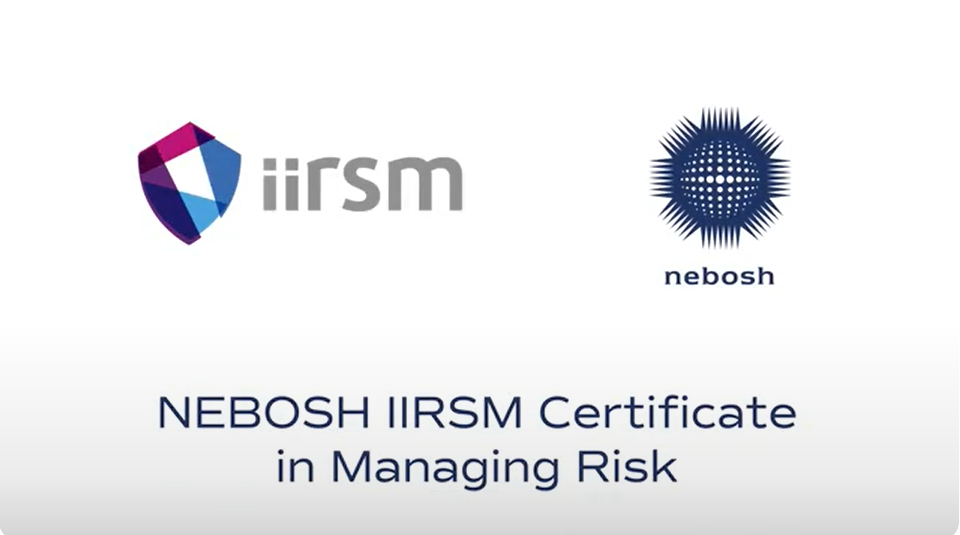About the Course
The NEBOSH IIRSM Certificate in Managing Risk can help you become better equipped to identify, evaluate, communicate and act on risk.
This qualification is available via eLearning, which means you can complete your studies at a time, place, and pace convenient to you. It will take a minimum of 28 hours to complete the NEBOSH IIRSM Certificate in Managing Risk course and a further hour for the assessment.
The qualification is relevant for anyone who wants to be able to identify, evaluate, and manage business risks and understand their impacts for an organisation, as well as all decision-makers or those who simply have an interest in risk management and are looking for CPD opportunities.
It is particularly relevant for risk professionals looking to gain a broader view of risk beyond a specialism such as health and safety, quality, or business continuity.
On successful completion of the NEBOSH IIRSM Certificate in Managing Risk, non-IIRSM members can apply for IIRSM membership and receive a 25 per cent discount off their first year’s membership.

Learning Outcomes
Studying this qualification will help you:
• Analyse the environment in which your organisation operates, identifying potential risks and opportunities and their impact on your objectives.
• Master the essential principles of risk and risk management and their link to decision-making.
• Have the right and timely conversations about risk with different stakeholders.
• Appreciate the relationship between psychology and decision-making.
• Understand the risk management process and framework based on ISO 31000.
• Appreciate the positive role risk management plays in strategy development, business
planning and achievement of objectives.
• Understand the vital role of people and culture.
• Appreciate the importance of an integrated approach to risk management.
Fees
The NEBOSH IIRSM Certificate in Managing Risk eLearning course can be purchase from licensed Learning Partners. This eLearning course fee includes the eLearning course itself, up to two attempts at the assessment and your certificate.
The cost will depend on the Learning Partner you choose to study with.
In-House Training
Our joint risk qualification is now available for in-house delivery. This option allows your organisation to tailor the course to meet your specific requirements, ensuring maximum relevance and impact.
Hear From Our Learners
If you would like to receive information by email on our latest offers, industry news and events, please subscribe below to give us consent to send you our monthly e-newsletter.
For full details of the personal data processed, please see our Privacy Policy.
Thank you for enquiry
A member of staff will be in touch soon. Regards, IIRSM
